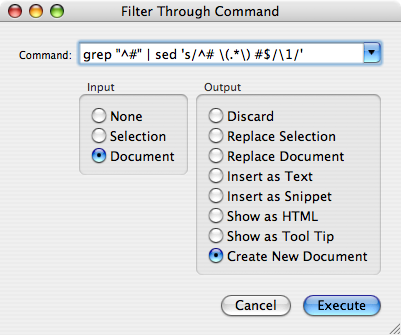


in Raku a leading ~ tilde is used to stringify the match object, and.

#Powershell grep sed code#
The code above is virtually identical between the two languages.
#Powershell grep sed how to#
I have played with using sed or awk, but have not been able to figure out how to filter the line to either delete the part before the match, or just return the part after the match, either will work. This all works in Bash and other command-line shells. Rather, you provide instructions for it to follow as it works through the text. It doesn’t have an interactive text editor interface, however. s is for substitute, so we can find and replace. sed is a stream editor that works on piped input or files of text. For example, to replace all occurrences of foo with bar: sed -i - 's/foo/bar/g' Here’s what each component of the command does: -i will change the original, and stands for in-place. The portion before and after the match will consistently vary. Run this command to search all the files in your current directory and replace a given string. It need a way to match lines to a pattern, but only to return the portion of the line after the match. The simplest way to solve this case is just to escape the closing quote of the grep search expression grep -iEl 'itemprop '\'description' path/to/files/. The edits should be done using an XML parser, not by hand, not by sed, not by awk.
Just bookmark all the lines matching s+So pulling open a file with cat and then using grep to get matching lines only gets me so far when I am working with the particular log set that I am dealing with. 1 Answer Sorted by: 0 It seems you have found a collision on how quotes are handled by the different parsers involved. Once its in this position though in notepad++ its real simple.


 0 kommentar(er)
0 kommentar(er)
